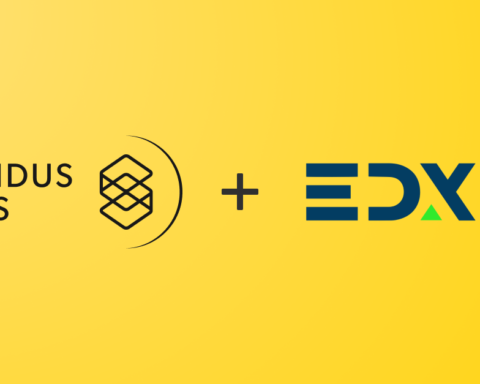The topic of cryptocurrency divides opinion these days, and there is no doubt that it has gone mainstream. Available statistics from trading platforms and wallets indicate that the user base of cryptocurrencies increased by nearly 190 percent between 2018 and 2020. By 2021, estimations declared over 300 million crypto users worldwide, with more than 18,000 businesses already accepting them as payments.
In recent times, conflict-hit areas have been given no choice but to rely on digital currencies as a means of transaction in response to rampant cash management and economic challenges.
Let’s look at this cryptocurrency trend in these three countries with different political climates: Afghanistan, Venezuela, and Iran.
Afghanistan
Afghanistan has consistently been in the headlines in the past month, with the whole world waiting for minute-by-minute updates on what has turned out to be a volatile situation. Before the final departure of the U.S. military from the country after twenty years of war, former Afghan leaders took sovereignty over the Middle Eastern country. Among threats of terrorism, the unfortunate, horrific images and videos of vulnerable women and children flooded the media, to the U.S. presence in the country coming to an end, it has been nothing short of drama for the past weeks as some factions claim a victory while others are seen as defeated. In these series of troubling events, the ‘ordinary’ Afghan person on the streets and expats have been left to figure out how to navigate their everyday lives.
Women have begun to worry about whether the era of being forced into traditional roles has resurfaced again and if assurances of their rights and that of children will not be a façade.
Speaking to Forbes Magazine, Fereshteh Forough, Founder of ‘Code to Inspire’, a free tuition computer programming school established in Afghanistan in 2015, “hopes for the safety and security of her students, family, and contacts on the ground.” With the help of these ‘contacts’, Fereshteh’s school started funding its operations in crypto in February of 2021 despite difficulties for merchants in Afghanistan to accept Bitcoin coupled with “heightened concerns about anti-money laundering and terrorist financing risks.” Incidentally, Code to Inspire offers women an opportunity to learn amongst many digital courses application designs and blockchain and cryptocurrency programming basics. It also accepts donations in cryptocurrency. Fereshteh saw an opportunity early enough in using cryptocurrency to help the unbanked female population in a very much cash-based country. In this time of crisis, she and the people she has helped would have a way of converting digital currency to their local currency without revealing their identity. One big challenge to all these, though, is fears of a shutdown of electricity which will affect crypto mining and internet access by the Taliban, which many have predicted will be an unsuccessful move.
There remains an argument about whether the use of cryptocurrency could have prevented the current war in Afghanistan. Vocal Bitcoin advocate and founder of MilitaryToken is quoted to have said that an enormous amount of cash just fell into the hands of the Taliban because cash can’t be truly secured. Bitcoin fixes this.” He points out that the use of debasement via Bitcoin prevents excessive funds from being available for the funding of the war. Should the world have adopted a decentralized money system, many inconveniences would be discouraged as the Taliban takes over banks where people have their savings and need access to their funds. In a country that already has a weak local currency, with a long list of frozen assets by international monetary organizations, it remains to be seen how consumers will cope with the shortage of cash and how the Taliban will finance this war without the presence of a solid cryptocurrency standard. Afghanistan is ranked 20th out of 154 by the Chain analysis 2021 Global Crypto Adoption Index in terms of cryptocurrency adoption.
Venezuela
The oil-rich Latin American country has suffered its share of ‘turmoil’ in recent times, from political instability, economic crisis to international sanctions. As a result, the country’s government is planning a redenomination of its currency, the bolivar, in October 2021 – an apparent response to hyperinflation. In addition, the country’s central bank will also launch its digital bolivar that will use an SMS-based exchange system to facilitate payments and transfers between users as a part of the country’s monetary makeover, a move to digitize Venezuela’s economy, which was 77 percent complete as of 2020.
The adoption of a digital currency had long been coming, significantly as the bolivar’s redenomination will not add any value to its worth. In 2018, Venezuela’s President Nicolas Maduro launched ‘Petro’, a cryptocurrency backed by the country’s rich oil reserves. Unfortunately, the experiment was nothing short of a flop. And so, news of the latest move to launch its Central Bank Digital Currency (CBDC) begs the question of “how different?”
The meteoric rise of hyperinflation experienced in Venezuela has led to the shortage of cash in the system. Therefore, many Venezuelans have taken the option of mining and trading cryptocurrency to seek refuge and protect themselves and their resources with the help of technology. Bitcoin, for example, has become a popular store of value platform for many of its citizens after the government released the B.V. Wallet, where fiat currencies can be converted into Bitcoin. Since then, fast-food chains, airlines, and other local merchants now accept payments in bitcoin. However, there have been questions on whether the high adoption of cryptocurrency, where the country is ranked third largest in the world, can be used for money laundering as a means of evading U.S. sanctions, and these need to be addressed. However, with the country’s inflation hanging at a whopping 2,940.8 percent, cryptocurrency is the answer for citizens of the South American country to secure the value of money; and protect it from its government which is currently engaged in a power struggle with the opposition.
Iran
Iran is no stranger to conflicts and international sanctions. In 2018, a U.S. sanction led to Iran’s banks being cut off from the global financial system, plummeting oil exports, and a loss of hard currency and revenue. With a current population of over 85 million people, citizens of the Islamic Republic are concerned about maximizing their fortunes for economic development.
It is estimated that 4.5 percent of all bitcoin mining takes place in Iran, producing revenues of close to $1 billion a year. While this is welcoming for a country with a total embargo placed on it to generate revenue internally, it is distasteful for the United States. For Iranians, it provides a balance as the country is suffering from a cash shortage with excess availability of oil and natural gas, as miners are paid directly in Bitcoin. Crypto’s mined can be used to pay for imports of authorized goods in Tehran, the country’s capital.
Iran’s central bank prohibits cryptocurrency mining and trading. However, the grapevine has it that it is widely available on the black market. Crypto mining is a big industry in the country and has been offered cheap power by the state. In May 2021, however, Iran banned cryptocurrency mining until September 22 through a “Supporting Cryptocurrency Mining and Regulation of Domestic Cryptocurrency Trade” legislation. The activity was blamed for the rising incidence of power blackouts. The message did not seem to go down well with the populace, as still, the Iranian police seized seven thousand computer miners at an illegal cryptocurrency farm in June 2021.
In July, parliamentary members went ahead to propose a bill that would require the government to ban all cryptocurrency payments in Iran other than those in a national cryptocurrency that has not been named while encouraging the mining of other cryptocurrencies as a source of state income. This will be done by offering subsidized power to licensed miners while requiring them to sell the cryptocurrencies to the Central Bank.
The state, in August, also went on to endorse Bitcoin for self-preservation, reiterating the Iranian government’s stance of resupplying electricity to resume its operations of cryptocurrency mining from September 22, 2021. As a result, Iran is expected to see a decline in power consumption in the coming months after the end of the summer season. In addition, its National Tax Administration has also proposed introducing a tax for the digital asset exchanges operating in the country.
There is no doubt that the worldwide adoption of cryptocurrency is growing and strategically aligned to the future of the digital revolution. As shown in the case of these three countries, the untapped market of cryptocurrencies could be the turning point of global economies when appropriately regulated, especially in times of crisis.
The Finsight.News opinion editorial was authored by Theresa Fianko.













